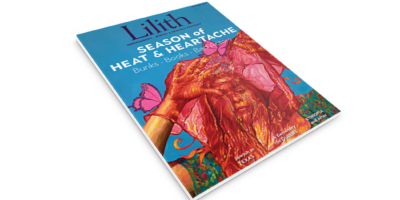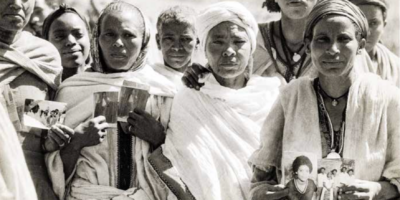
Why I Wrote the Book: Birth Control
Before becoming a mom, I wondered what birth was like. I wanted to know what actually happened in the body during labor, during a contraction, what it felt like to dive inside yourself and to push a baby out.
Providers shared only the tests to take, what not to eat, and how to pack the hospital bag. Friends and strangers supplied what I actually hungered to know. One tore badly because her epidural was so strong that she couldn’t feel herself straining to push. Another was coerced into starting Pitocin, which made contractions constant and intolerable, and led to surgery.
I heard about one doctor who said, you can write a birth plan, but we’re going to do what we need to do to get that baby out of you. Another told a woman, if you want to give birth grunting on all fours like those Brooklyn moms, I’m not the doctor for you. One woman lost skin when her anesthesiologist removed the epidural taped to her back. Another was hemorrhaging but no one realized it. Her mother and sister had been kept from the room. When they finally arrived and demanded to see her doctor he turned white and ordered a blood transfusion that likely saved her life.
These tales sound extreme but they are the kind I hear daily when I ask about birth. I decided to collect these stories more formally through a survey of 1300 people: 47% said they’re rarely or never asked about their birth story. Some 40 percent described their birth as traumatic. Forcing patients to undergo procedures they don’t want or need—pelvic exams, surgeries—doesn’t just make for a bad experience, it’s worse for long-term health. Poor health outcomes and trauma are connected to the fact that ones community is cut off during a time when it should be brought in.
The first birth we experience is our own.
Birth Control: The Insidious Power of Men Over Motherhood (Seal Press, $30.00) is the product of my years of reporting, research, survey work, interviews, and meditating on my own personal experiences. I conclude that birth in America is broken, that women are controlled, traumatized, injured, and even killed, because tradition is supplanting evidence and women’s needs and desires are secondary to providers’ whims and hospital protocol.

Birth in America is broken… women are controlled, traumatized, injured, and even killed
Pregnant people need to hear this, those who have suffered during birth deserve validation, and providers who care for women need more support themselves. I still ask to hear birth stories. I have three of my own. The two in the hospital were fast, vaginal, without intervention, but not without moments of coercion and dehumanization. The birth at home was transcendent. Everyone deserves a birth like my third.
Talmud states that pregnant women can have whatever their bodies crave or desire, even pork on Yom Kippur, in flagrant violation of kashrut, because they alone know their own needs as they grow life, and their lives trump Jewish law. We can extrapolate in this ancient wisdom the command that any pregnant person—they needn’t be Jewish nor a woman—must control what happens to their bodies without coercion by anyone: a doctor or midwife, a nurse, anesthesiologist, or a surgeon.
The American birth system would be wise to heed this slice of Talmud. If we were to routinely ask what people want and need while giving birth, and honor their answers, we would all have empowered birth, a taste of the sublime.
Allison Yarrow is an award-winning journalist, speaker, and author of Birth Control: The Insidious Power of Men Over Motherhood and 90s Bitch: Media, Culture, and the Failed Promise of Gender Equality, finalist for the Los Angeles Press Club book award.






